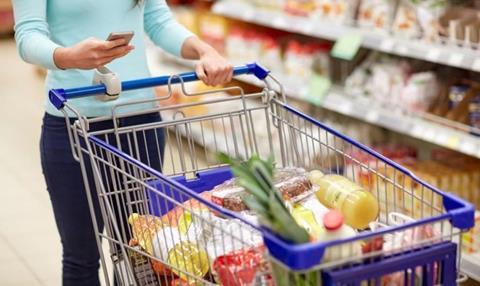The latest consumer inflation rates have been published by the Office for National Statistics (ONS), with some of the "main downward effects" attributed to meat and dairy products.

The Consumer Prices Index including owner occupiers' housing costs (CPIH) rose by 3% in the year to April 2024, down from 3.8% in the 12 months to March.
Prices of food and non-alcoholic beverages rose by 2.9% in the year to April 2024, down from 4% in the year to March. The April figure was the lowest annual inflation rate since November 2021.
ONS said the "main downward effects" of the food inflation rate easing came from a combination of meat and dairy products, bread, cereals and vegetables. It also stated that the easing in the annual rate between March and April 2024 was a result of prices rising by 0.3% on the month, compared with a rise of 1.2% a year prior.
Director of insight at the British Retail Consortium (BRC) Kris Hamer said: “Inflation continued to head back towards the Bank of England’s 2% target, with a significant drop in April. The lowest energy price cap in two years and food inflation falling to its lowest level since November 2021 helped to reduce pressure on household finances and brighten their outlook for the economy."
He said: “Retailers are playing a key part in bringing inflation down, but it is vital that Government policy supports this too. Retail plays a key role in every part of the country, from the smallest village to the largest city, employing millions of people and serving millions more.
“As the cost burden of new policies rises – from business rates to packaging taxes – this affects not just the businesses, but the customers too. With an election looming, it is vital that parties outline their support for customers and retailers through the upcoming manifestos.”















